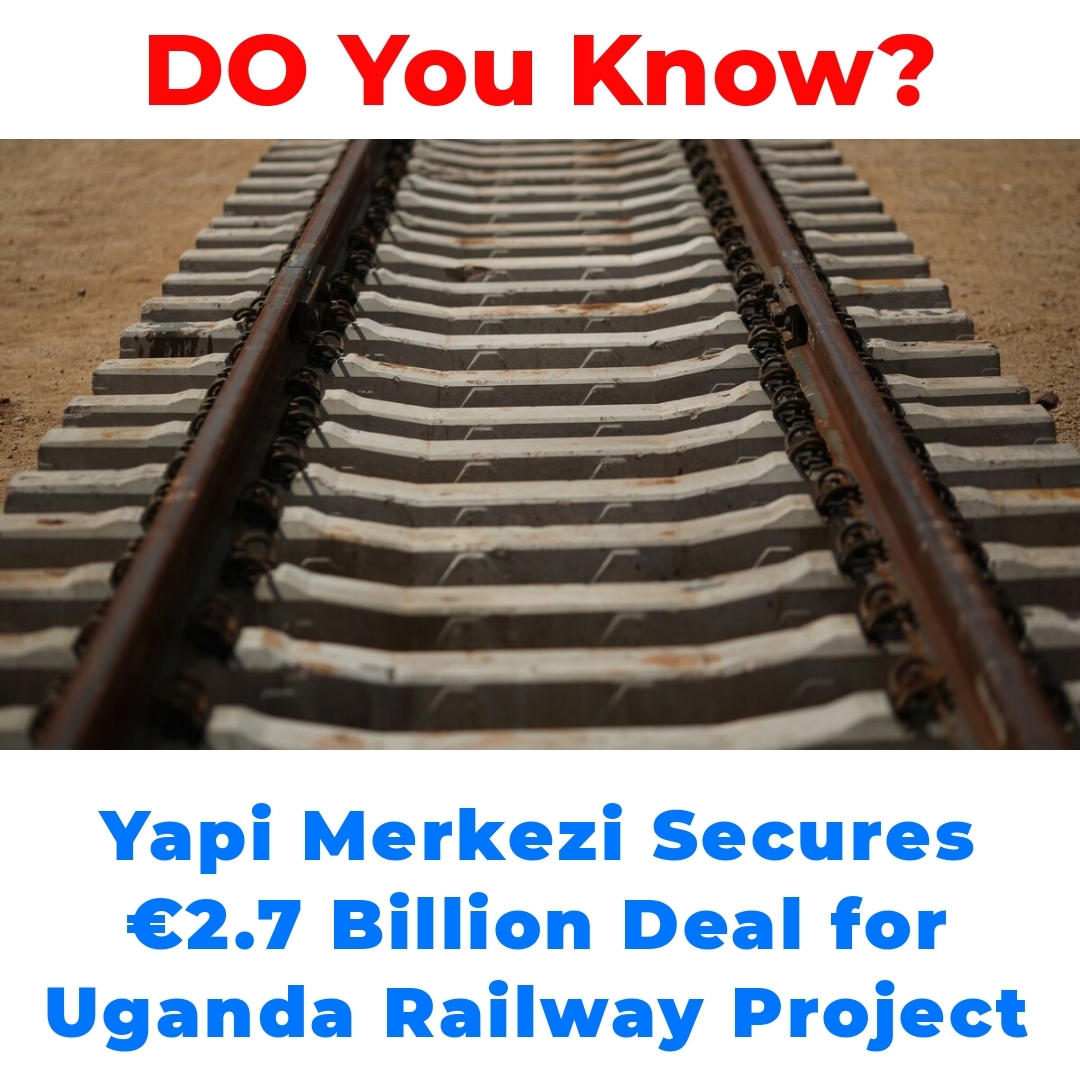The railway project in Uganda holds immense promise for the nation’s infrastructure and economic growth. Recently, the announcement of a €2.7 billion deal with Yapi Merkezi Holdings AS marks a significant step forward in reviving this crucial transport initiative, aiming to enhance connectivity and overcome past financing challenges.


The railway project in Uganda represents a crucial opportunity for the nation to enhance its infrastructure and spur economic growth. With the announcement of a €2.7 billion deal with Yapi Merkezi Holdings AS, there’s a renewed focus on improving transport connectivity and addressing historical financing challenges. This deal is more than just numbers; it’s a potential game-changer for Uganda’s railway network.
Yapi Merkezi Holdings AS is a well-established player in the international construction sector. This company has a proven track record in delivering large-scale infrastructure projects across the globe. The €2.7 billion deal signifies a major milestone for Uganda’s railway construction efforts. It comes at a time when the nation desperately needs reliable and efficient transport systems to connect its vast resources and population.
To understand the significance of this new partnership, it’s essential to look back at the previous challenges faced in financing Uganda’s railway line. Historically, Uganda has struggled to secure the necessary funds to develop and maintain its infrastructure projects. The withdrawal of Chinese support created further hurdles for ongoing developments. This shift not only impacted existing projects but also raised questions about future funding avenues and international partnerships.
The significance of the railway project in Uganda cannot be overstated. This initiative promises to be a catalyst for economic growth by improving the efficiency of transporting goods and people across the country. Enhanced railway infrastructure could better link Uganda with neighboring countries, thus improving integration into the larger African railway networks. Such connectivity could pave the way for increased trade and investment opportunities within the region.
With Yapi Merkezi Holdings AS taking the lead, we can look forward to some specific projects under this deal. The timeline for the railway construction is set to span several years, with goals clearly laid out. The scope of the project will include not only the physical railway line but also the introduction of state-of-the-art technologies and innovations in engineering. These technical advancements promise to boost not just construction timelines but the overall efficiency and safety of rail transport in Uganda.
Chinese financing has played a significant role in Uganda’s railway projects historically. For years, Uganda relied heavily on Chinese support for its infrastructure development. However, this reliance presents challenges, especially with the recent shifts in funding sources. By moving to international firms like Yapi Merkezi Holdings AS, Uganda is diversifying its investments, which may reduce risks associated with over-dependence on a single financial partner.
Looking toward the future, the role of international construction projects like the railway project in Uganda is pivotal. As Uganda continues to navigate its infrastructure landscape, collaborations with global firms will likely become increasingly important. Future steps could include additional partnerships aimed at expanding Uganda’s railway networks further, which will support not just local transport needs but also regional connectivity.
In conclusion, the railway project in Uganda represents a significant transformation opportunity for the country. The €2.7 billion deal with Yapi Merkezi Holdings AS is poised to breathe new life into Uganda’s transport infrastructure, addressing past challenges and setting a path for economic growth. With strategic investments and international cooperation, Uganda can look forward to a robust railway system that will facilitate trade and enhance connectivity for its people.
Frequently Asked Questions
What is the current railway project in Uganda about?
The railway project in Uganda is focused on enhancing the country’s transport infrastructure, driven by a €2.7 billion deal with Yapi Merkezi Holdings AS. This project aims to improve connectivity for both goods and people, ultimately spurring economic growth.
Who is Yapi Merkezi Holdings AS?
Yapi Merkezi Holdings AS is a reputable international construction company known for its success in large-scale infrastructure projects worldwide. They bring a wealth of experience to the railway project in Uganda.
Why is this railway project significant for Uganda?
- It aims to transform transport systems within Uganda, making them more reliable and efficient.
- Improves links with neighboring countries and integrates Uganda into broader African railway networks.
- Facilitates increased trade and investment opportunities in the region.
What challenges has Uganda faced in funding its railway projects?
Uganda has historically struggled to secure funds for railway developments. Withdrawal of Chinese financial support created further issues, which raised concerns about the country’s future infrastructure funding.
What are the plans for the railway construction?
The construction is expected to take several years and will include:
- The physical railway line.
- State-of-the-art technologies and engineering innovations.
These advancements aim to enhance construction speed, efficiency, and overall safety of rail transport in Uganda.
How does moving away from Chinese financing benefit Uganda?
Diversifying investments by partnering with international firms like Yapi Merkezi Holdings AS helps reduce the risks associated with relying on a single financial partner, leading to a more balanced and sustainable funding approach.
What does the future hold for Uganda’s railway projects?
Future partnerships aimed at expanding Uganda’s railway networks will be crucial. Collaborations with global firms can enhance local transport needs and improve regional connectivity.
How will the railway project impact economic growth in Uganda?
By improving transport infrastructure, the railway project is expected to boost economic growth through enhanced trade opportunities, better access to markets, and overall improvements in the efficiency of movement across the country.





